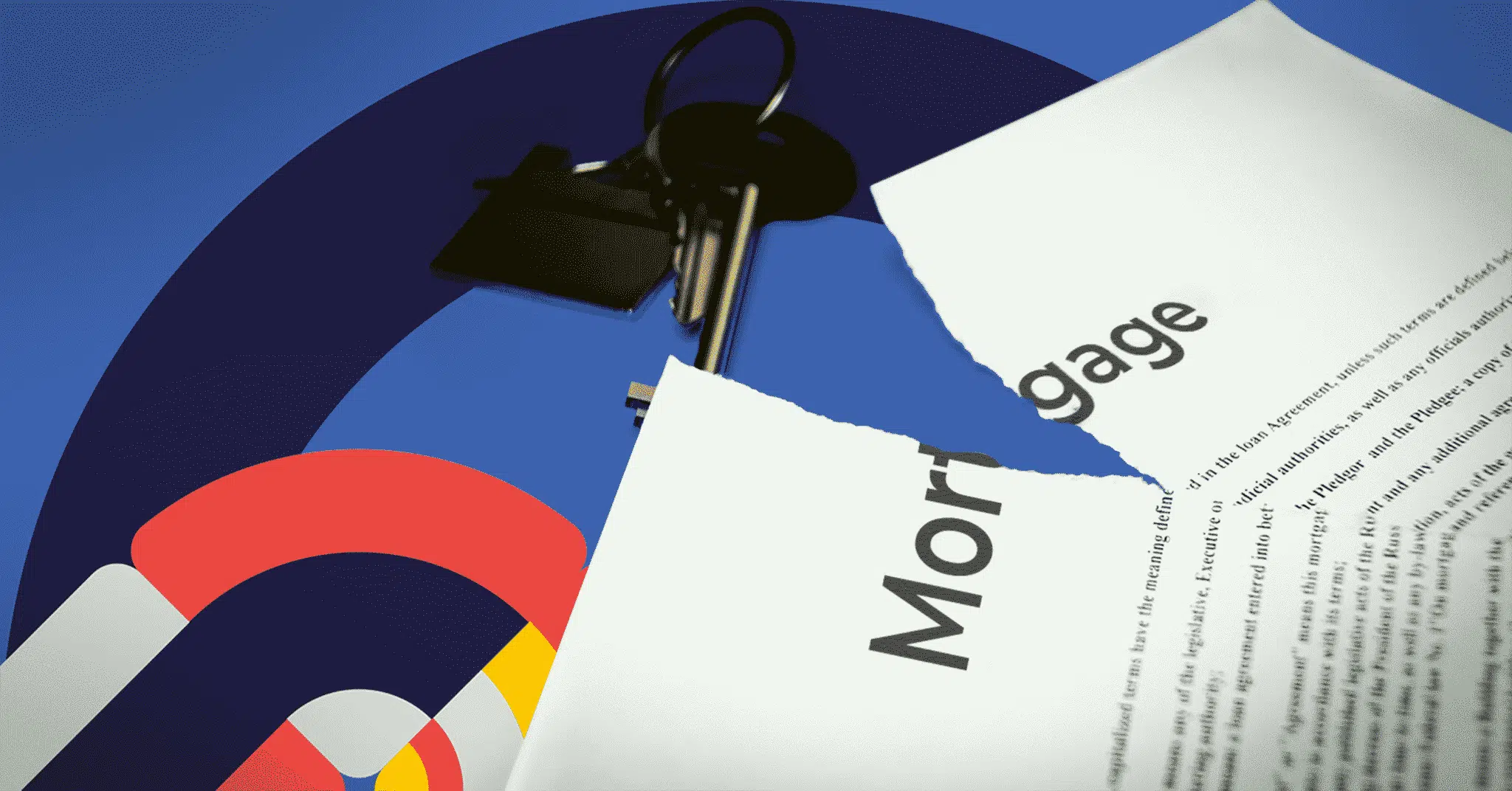Should You Break Your Mortgage? | Breaking Mortgage Penalty

Table of contents
Many homeowners choose to break their mortgage for various reasons. Maybe you’ve been waiting for maturity to renew, but breaking your mortgage now makes more financial sense. Or perhaps you need to break your mortgage due to a life event and can’t wait for maturity.
As homeowners look for rate relief and cost savings, breaking your mortgage could help you take advantage of lower rates, pay down high-interest debts, renovate, send children to school, or make a downpayment on a vacation home or investment property. However, there are costs involved that could outweigh any advantages. Unless you have an open mortgage, you must pay a penalty for breaking your mortgage before it matures.
In this article, we’ll examine the implications of breaking your mortgage and some alternatives that can help you ensure you’re making the right decision in your best interest.
Key Takeaways
- Breaking your mortgage can result in substantial penalties depending on your mortgage type and the time remaining on the term.
- Penalties are calculated based on either 3 months of interest or an interest rate differential, whichever is higher.
- Other strategies to avoid high penalties include blending and extending, porting, early renewal, and mortgage prepayment.
What Is the Penalty for Breaking a Mortgage?
When you sign a mortgage contract, you commit to the terms and conditions outlined in the contract with your lender. If you decide to break this agreement before your term ends, you will face a penalty for breaking your mortgage unless you have an open mortgage.
Since most mortgages are closed, you will pay a penalty determined by your mortgage type and where you are in the term. The penalty for breaking a fixed mortgage is calculated as the interest rate differential (IRD) or 3 months of interest, whichever is higher. However, some restricted mortgages require a percentage of the balance as a penalty to break the mortgage.
If you break a fixed-rate mortgage closer to the beginning of the term, you will pay much higher penalties than if you break it closer to the end. Variable mortgages have a penalty calculated as 3 months of interest. It won’t matter where you are in the term if you have a variable or adjustable-rate mortgage.
Cost to Break Your Mortgage Contract
The cost to break your mortgage can vary significantly depending on your mortgage type and the remaining term. Open mortgages allow you to break your mortgage at any time without penalty. However, if you have an open mortgage, you are likely paying a higher interest rate than a closed mortgage to compensate for this flexibility.
Closed mortgages charge a penalty based on whether the mortgage is fixed or variable. Variable and adjustable mortgages calculate the penalty as 3 months of interest, while fixed mortgages calculate the penalty as the higher of either 3 months of interest or the interest rate differential (IRD).
For example, consider that you renewed your mortgage to a 5-year fixed rate of 5.25%, which you now want to break. You are now 3 years into the term with $300,000 left on the mortgage. Interest rates for 2-year terms are currently 3.95%.
To calculate 3 months of interest:
- Multiply the remaining mortgage balance by the interest rate.
- $300,000 x 0.0525 = $15,750
- Divide the fee by 12 months to get a monthly amount.
- $15,750 / 12 = $1,312.50
- Multiply the monthly fee by 3 to determine the penalty.
- $1,312.50 x 3 = $3,937.50
To calculate the IRD:
- Calculate the difference between your current interest rate and rates that match the time remaining on your term. In this example, you will subtract your current rate of 5.25% and 3.95% for a 2-year term.
- 5.25% – 3.95% = 1.30%
- Multiply the remaining principal balance by the difference in rates.
- $300,000 x 0.013 = $3,900
- Divide by 12 months to get a monthly amount.
- $3,900 / 12 = $325
- Multiply the amount by the time remaining on the mortgage term in months. In this example, it’s 2 years or 24 months.
- $325 x 24 = $7,800
In this example, you would be required to pay the IRD penalty of $7,800 as it’s higher than 3 months of interest. However, if this example were for a variable or adjustable-rate mortgage, you would only pay the 3 months of interest of $3,937.50. It’s important to note there may also be additional fees to consider on top of the penalty, like legal and registration costs, mortgage discharge fees, and land title de-registration fees.
Standard IRD vs Discounted IRD
There are two calculations for IRD which could have a significant impact on the penalty you pay. Standard IRD penalties like the one calculated above are used by mortgage finance companies, virtual lenders, and non-bank mortgage lenders like nesto.
Banks and credit unions use discounted IRD penalties that compare your current mortgage rate to the current posted rate minus any discount you originally received. This makes the penalties much higher, especially if you have a short-term fixed-rate mortgage.
Using the example above in the Standard IRD calculation, we will compare that to a Discounted IRD if you received a 1% discount from your lender’s posted rate when you took out or renewed your mortgage.
To calculate the Discounted IRD:
- Subtract the discount you received (1%) from the 2-year term.
- 3.95% – 1% = 2.95%
- Calculate the difference between your current interest rate and the result from Step 1.
- 5.25% – 2.95% = 2.30%
- Multiply the remaining principal balance by the difference in rates.
- $300,000 x 0.023 = $6,900
- Divide by 12 months to get a monthly amount.
- $6,900 / 12 = $575
- Multiply the amount by the time remaining on the mortgage term in months. In this example, it’s 2 years or 24 months.
- $575 x 24 = $13,800
It’s important to understand your lender’s method to calculate IRD penalties, as the difference could substantially erode your cost savings when breaking your mortgage.
Want to save thousands of
dollars on your renewal?
Renew with nesto and you can.
Why Break Your Mortgage Contract
Breaking your mortgage contract may seem counterintuitive, especially given the potential for hefty penalties. However, breaking your mortgage and paying a penalty may make sense in some situations rather than waiting until the end of your mortgage term.
Breaking Your Contract Due to Life Events
Significant life events such as job relocation, a growing family, caring for elderly family members, or divorce/separation may require you to break your mortgage. Your mortgage may no longer align with your evolving needs or financial circumstances in these situations.
Breaking Your Contract to Improve Your Finances
One of the main reasons borrowers break their mortgage is to secure a lower interest rate or extend their amortization to lower mortgage payments through a refinance. Even a slight reduction in the interest rate you pay could translate into substantial savings over your mortgage term. However, it’s important to factor in the cost of the penalty to ensure the cost savings from a new interest rate will be higher than the cost of breaking the mortgage before the end of the term.
You may also break your mortgage to access equity and consolidate high-interest debts like credit cards and personal loans into a single lower-interest mortgage payment, streamlining debt management and potentially saving you thousands in interest charges. You can also access your home equity for other large purchases or expenses like your children’s education, fund renovations, or for the downpayment to purchase another property.
Breaking Your Contract to Switch Lenders
While you can refinance with your lender, you may prefer refinancing with a new lender instead. This can be due to other lenders offering better rates or more favourable terms or if you are dissatisfied with the service of your current lender, prompting you to make the switch.
Blend and Extend: Extending Your Mortgage Contract
If the cost of breaking your mortgage for better rates outweighs the cost savings, you can still take advantage of lower rates and extend your mortgage term through a blend and extend. This option combines your existing mortgage rate with a new one, allowing you to extend your mortgage term to save interest costs and reduce mortgage payments.
How to Calculate the Blended Interest Rate
To calculate your new rate using blend and extend, you must do a few calculations that help blend the new rate with your old rate. In this example, you have a balance of $300,000 with 2 years remaining on a 5-year term. You also wish to extend your term back to 5 years, which will be factored into the calculation.
- mortgage balance: $300,000
- current interest rate: 5.25%
- months until the end of the term: 24 (2 years)
- months in the blend and extend term: 60 (5 years)
- current rate for a 5-year term: 2.95%
- Multiply your current interest rate by the months remaining on your current mortgage term.
- 5.25% x 24 = 126
- Subtract the months in the new term from the remaining months on your current mortgage term.
- 60 – 24 = 36
- Multiply the current 5-year fixed interest rate by the difference in months from step 2.
- 2.95% x 36 = 106.2
- Add together the results from steps 1 and 3.
- 126 + 106.2 = 232.2
- Divide the results from step 4 by the number of months in the new term.
- 232.2 / 60 = 3.87%
If you blend and extend the mortgage instead of breaking it, you would have an interest rate of 3.87% for the next 5 years.
Alternative Options to Breaking Your Mortgage
There are alternative options if breaking your mortgage or blending and extending don’t fit your situation. If you are selling your current home and purchasing a new one simultaneously, you may be able to port your mortgage to the new property. This helps you avoid penalties and means you get to keep your interest rate, which is beneficial if rates are currently higher.
If you are close to renewal, you may be able to early renew without penalty. Typically, you can renew your mortgage penalty-free up to 120 days in advance. You may also choose an open mortgage or a shorter term if you are up for renewal and anticipate needing to break your mortgage sometime during your next term.
If you are already locked into a term and anticipate needing to break your mortgage at some point, you can take advantage of prepayment privileges if you have the means to do so. As long as you remain within your annual prepayment limit, there are no penalties for using prepayment privileges. This will lower your mortgage balance, reducing the penalty for breaking the mortgage.
Another option could be to have the new buyer assume your existing mortgage. The buyer would take over your original mortgage contract and continue with the mortgage payments, terms, and conditions. However, the risk of default by the new owner through a mortgage assumption would transfer to you, the seller.
How to Minimize Mortgage Penalties
While, in some cases, the need to break your mortgage may be unavoidable, there are some strategies you can use to minimize the penalties you will pay.
Strategies to Reduce Penalty Costs
If you have a fixed-rate mortgage and can wait until closer to the end of your mortgage term, this will help you save on penalty costs. The shorter the time remaining, the less penalty you will be required to pay.
If current posted rates are higher than yours, you’ll likely pay only a 3-month interest penalty. But if you’re looking to save by locking into lower rates, you can expect to pay an IRD penalty on your fixed mortgage.
If you have additional cash savings, you can also use prepayment privileges to reduce the outstanding principal. Lowering the mortgage balance for the penalty calculation will help you save money.
Frequently Asked Questions
What is the penalty for breaking a fixed-rate mortgage?
The penalty for breaking a fixed-rate mortgage is the higher of 3 months of interest or the interest rate differential (IRD).
How do I calculate the cost of breaking my mortgage?
To calculate the cost of breaking your mortgage, you take the remaining mortgage balance multiplied by your interest rate, divide by 12, and then multiply by 3 to get the penalty equivalent to 3 months of interest. If this figure is higher than the IRD, this will apply to variable-rate mortgages or fixed rates.
To calculate the IRD, you first need to know if you will be charged the Standard or Discounted IRD penalty. If you are charged the Discounted IRD penalty, you first need to subtract any discount you received from the posted rate that matches the remaining time on your mortgage term before doing the remainder of the calculations that apply to the Standard IRD calculation.
If you will be charged the Standard IRD, subtract your current interest rate from the rate matching the remaining time on your mortgage term. You then multiply the remaining principal by the difference in rates, divide by 12 to get a monthly amount, and multiply by the time remaining on the mortgage term in months. This will apply to fixed-rate mortgages if the figure exceeds the 3 months of interest calculation.
Can I avoid penalties if I switch lenders?
When switching lenders, you can only avoid penalties if you are within your renewal period. You will incur a prepayment penalty if you switch at any other point during your mortgage term. When switching lenders, lenders will allow you to blend up to $3,000 in total costs (fees and penalties) with your mortgage balance.
What are my options if I can’t renew my mortgage?
It is rare for a lender to refuse to renew a mortgage. If you cannot renew, you can explore options like refinancing, switching to subprime or alternative lending, improving your credit score, increasing income, consolidating debts, finding a co-signer or guarantor to add to the mortgage, downsizing, or selling.
How does a blended mortgage work?
A blended mortgage works by combining your existing mortgage rate with a new rate while allowing you to extend the mortgage term. This can help you save on interest costs and fees to switch lenders while avoiding penalties for breaking your mortgage for a better rate.
Final Thoughts
Breaking your mortgage can come with significant financial penalties that could be greater than the potential cost savings if you want to lower your interest rate or consolidate debts. A cost savings analysis can help you determine if breaking your mortgage makes sense by weighing the potential savings against the penalties you will incur for breaking your mortgage before the end of the term.
It’s important to contact your lender to determine the exact penalty for breaking your mortgage and determine if the savings are significant enough to consider this option as part of your mortgage strategy.
Contact nesto’s mortgage experts to see how much you can save by renewing or refinancing your mortgage today.
Why Choose nesto
At nesto, our commission-free mortgage experts, certified in multiple provinces, provide exceptional advice and service that exceeds industry standards. Our mortgage experts are non-commissioned, salaried employees who provide impartial guidance on mortgage options tailored to your needs and are evaluated based on client satisfaction and advice quality. nesto aims to transform the mortgage industry by providing honest advice and competitive rates using a 100% fully digital, transparent, seamless process.
nesto is on a mission to offer a positive, empowering and transparent property financing experience – simplified from start to finish.
Contact our licensed and knowledgeable mortgage experts to find your best mortgage rate in Canada.
Ready to get started?
In just a few clicks, you can see our current rates. Then apply for your mortgage online in minutes!















